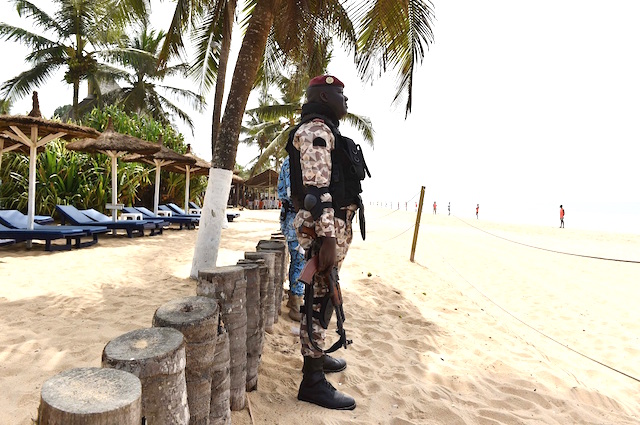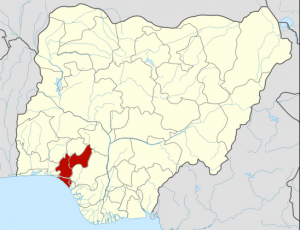The Risk of Jihadist Contagion in West Africa

For a group of poor and indebted countries, the advantage of spending such large sums on counter-terrorism initiatives is also arguable. Experience shows that money offers no guaranteed results. Nigeria spent $2 billion on defence in 2018, yet it has been unable to overpower Boko Haram, a terrorist group with only a few thousand fighters. The country has even been forced to call on Chad, whose defence spending ran to $233 million in 2018, for help.The region must find smarter, more effective ways of containing the jihadist threat: greater coordination; better intelligence gathering and sharing; and more effective border controls, which will require tackling the corruption that is rife in many customs services and police forces. ECOWAS must use the money to fill the gaps rather than spend it on expensive military operations that have yet to deliver on their promises. Three large-scale operations in May and November 2018 formed part of the Accra Initiative. Although it is difficult to be certain of the actual level of involvement of the hundreds of people arrested, the over-representation of the Peul among them raises questions. Giving into stigmatisation of particular ethnic groups would spur jihadist recruitment among those groups – as already seen in the Sahel.Countries in the region should avoid unrealistic quick fixes and instead implement counter-terrorism plans based on budgets that can be rolled over for the long term. Experts agree that combating active jihadist movements in West Africa requires a lengthy commitment.The Ouagadougou summit has not dispelled doubts about ECOWAS’s ability to collaborate more effectively with neighbouring regions, particularly North and Central Africa. Meanwhile, the crises in the Sahel and the Lake Chad basin have revealed the geographic spread of armed groups’ activities. Member states in different regional groupings therefore need to come up with coordinated responses. In this sense, the same criticism that the G5 is too geographically limited to be effective in combating terrorism could also be levelled at ECOWAS. Jihadism transcends the borders of West Africa and affects other countries such as Chad.To make any real difference, ECOWAS must be more politically engaged and less fixated on security issues. ECOWAS has not yet said how it plans to coordinate its Ouagadougou roadmap with European initiatives on security and development in the Sahel. One question, for example, is how it will accommodate the new Partnership for Security and Stability for the Sahel, or P3S, announced in Biarritz in August 2019 by France and Germany. For the time being, P3S does not include ECOWAS as such – the first point of the communiqué announcing its existence does not mention the West African association, whereas it does refer to the African Union, the New Partnership for Africa’s Development and the G5 Sahel Joint Force. But it might eventually welcome ECOWAS members. Like ECOWAS, the yet-to-be-finalised P3S seeks to improve coordination of security and development projects in the region, particularly those led by European partners.More significantly, the ECOWAS summit in Ouagadougou focused on combating jihadist violence as opposed to dealing with political issues. In so doing, this high-level meeting perpetuated a simplistic reading of the violence over the past six years in the Sahel: one positing that the violence stems solely from terrorist acts, rather than other roots, such as rural insurgencies. To make any real difference, ECOWAS must be more politically engaged and less fixated on security issues. It could start by drawing a distinction between actions labelled as “terrorism”-related, such as the Grand-Bassam attacks in 2016, and rebellions in rural parts of the Sahel. If ECOWAS continues to be locked into a security paradigm, referring to all violence as terrorism, it risks overlooking the eminently political dimension of a crisis that can translate into outright rejection of governments and raise questions about states’ ability to control conflicts over access to natural resources.VI. The Threat of Political CrisesECOWAS must play a broader political role to ward off another threat looming over the region: the risk of conflict connected to electoral processes. In various coastal countries with elections scheduled for next year, political actors are working “to rekindle polarisation, stirring up tensions and violence”. In the near future, many member countries could find themselves severely weakened by these political tensions. The emphasis on security and terrorism must not overshadow the fact that political crises are often as deadly as clashes with armed groups. They also tend to weaken the armed forces by dividing them along party or ethnic lines. Political conflicts undo years of investment in training and force governments to use the security apparatus to monitor and punish their rivals. All these factors weaken their ability to tackle well-trained and well-prepared armed groups.Tensions have been running high for the past several months in Benin, for example, after the executive branch moved to limit participation in the April 2019 legislative elections to two groups that support the president, Patrice Talon. Violence has broken out in various areas, leading to at least seven deaths in the capital Cotonou in May. The political dialogue announced by President Talon on 10 October is a pointless exercise because it excludes serious opposition. In neighbouring Togo, a political crisis pitting a fragmented opposition against a dynastic ruling party remains unresolved after four decades, and a presidential election is also coming up next year.Côte d’Ivoire is likewise faced with several obstacles less than a year ahead of its presidential election scheduled for October 2020. No consensus has been reached on the electoral framework, with the main opposition party, the Democratic Party of Côte d’Ivoire, refusing to sit on the independent electoral commission. The disagreements between participants about the rules of the game augur a tense election whose result could be contested. The unease could even trigger violent protests and a pre-electoral crisis. Aggravating the situation still further, a few months ago the government launched a campaign of intimidation on the opposition, targeting high-profile figures, jeopardising the possibility of dialogue and fuelling resentment.In Guinea, President Alpha Condé plans to run for a third term in 2020. His desire to amend the constitution accordingly has already sparked major protests, causing several deaths in October and November 2019. His determination to cling to power could eventually lead to ethnic conflicts between his group, the Malinké, and the country’s predominant Peul population, who are the majority in the opposition parties.In certain countries of the Gulf of Guinea, the commitment to engage in counter-terrorism initiatives is sometimes unclear. Governments have occasionally diverted funds intended for security operations to monitor or repress the opposition instead of dealing with the threat of armed groups. Similarly, some leaders have realised that trumpeting counter-terrorism initiatives brings rewards from their backers, in the form of either extra funding or greater tolerance for authoritarian rule.The risk lies in the combustible mix of the spreading jihadist threat to the countries in the Gulf of Guinea and the onset of violent political clashes in the cities to the south of these countries. If such disturbances erupt in one or more coastal countries, security forces could deploy in the south, increasing the distance between capitals and northern territories, and opening the way for jihadist groups to move in. ECOWAS, with the support of experienced partners, particularly the UN Office for West Africa and the Sahel, should move as quickly as possible to contain the spread of political crises.The regional organisation must condemn the attacks on fundamental rights occurring in some member states, such as the expulsion and intimidation of opposition members and the violent repression of protests. It should also remind its member countries about shared rules on electoral laws and independence of electoral bodies. In accordance with the protocol on democracy and good governance adopted by ECOWAS members on 21 December 2001, these governments should refrain from making “substantial modification […] to the electoral laws in the last six months before the elections” and ensure that the “bodies responsible for organizing the elections [are] independent or neutral and … have the confidence of all the political actors”.VII. ConclusionIn 2020, for the first time in its post-independence history, West Africa could face a major crisis coupling political disturbances in the south with insecurity in the north. The combination of these two flashpoints could be catastrophic for the region. To avert this possibility, awareness of the danger must be raised at the highest possible level. Leaders need to recognise that terrorism is not the only threat in the area, and that regional interests must take precedence over private and national considerations. Otherwise, various heads of state will soon find themselves the leaders of countries in turmoil.Dakar/Brussels, 20 December 2019




